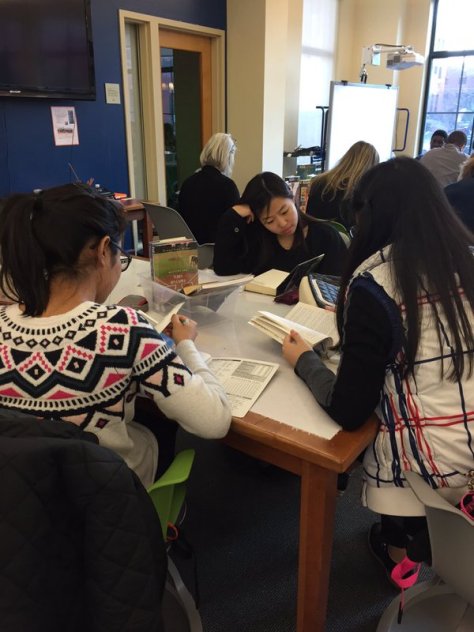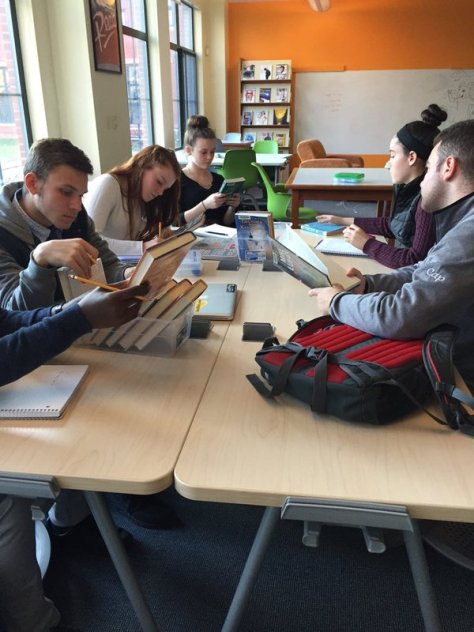 I have anxiety. It makes me sad for my family, and it makes me sad for me because it has prevented us from doing things. Fun things like taking day trips. It has made doing these kinds of fun things hard for me. The reason anxiety causes me so much trouble is that in my particular case, it’s my car that makes me anxious.
I have anxiety. It makes me sad for my family, and it makes me sad for me because it has prevented us from doing things. Fun things like taking day trips. It has made doing these kinds of fun things hard for me. The reason anxiety causes me so much trouble is that in my particular case, it’s my car that makes me anxious.
My car is getting rather long in the tooth, and it’s had some hard to diagnose issues over the years. The first time we had trouble with it was in the middle of nowhere on a road trip from Georgia to Massachusetts—a vacation. We broke down in the middle of Pennsylvania. We had been stuck in traffic, and though I was driving, I hadn’t noticed the engine running hot until the alarm started to go off. Right after that, steam poured out from under the hood. I pulled over as best I could, and we called AAA. We were waylaid for about five hours with two children on the autism spectrum and nothing to do, really, until the car was fixed and we could continue on to Salem. I was terrified that the mechanic would just about rob us. You really are putting your trust in people when you’re in a situation like that.
I had had plenty of car issues in the past. Once, I was pregnant and had two children with me, and I didn’t have a way to call anyone, so I was walking up the interstate toward a gas station. Some nice guy took pity on me (I was rather pitiful, hugely pregnant and pulling two small children along) and drove me there. Once when my oldest was a baby, I got out of the car to take her in to daycare. I was running late. And green liquid started pouring out of the car. My point is that this anxiety issue grew over time, but it didn’t become debilitating until this car, mainly because we can’t really seem to figure out why it has problems sometimes and doesn’t have problems other times. So I have this feeling of distrust where the car is concerned.
Rationally, the very worst thing that could happen is that it would break down and need a tow. I could still get home. It would be okay. It has been okay before. I also know that right now, if something like that happened, we could afford the repair. No one would be harmed. It would be an inconvenience. That’s all.
I can actually go long stretches when the car has been fine for a while and not be too anxious. I even drove it the other day. Dylan needed a Star Wars tee-shirt for school, and because of his communication issues, we didn’t realize what he wanted until about 10:30 at night, so I got in the car, went to Walmart, and bought him one. I was gripping the steering wheel the whole time.
The issue that we have, and it’s intermittent, seems to be that when the car is fully warmed up, it tends to, and excuse my precise mechanical description here—FREAK OUT—when it’s at a stop. It used to start to overheat. It doesn’t do that anymore, but the oil light flashes. I think I know what the issue is because I have Googled it, and it’s not a terribly bad one. We have had it in the shop, and it works okay for a while, but the frustrating thing is we can’t seem to figure out why it does it so we can fix it once and for all. And it doesn’t even do it very often or even kind of often. It’s an extremely rare issue.
The car was acting up a bit last Friday when Steve came to get me after school. I tried to be calm, but I started shaking and my heart was pounding. I was starting to have an anxiety attack. Ever since Friday, I’ve been a bit of a wreck in the car. Let me tell you what I have done to avoid driving. I walked to the grocery store in the rain today. It was okay. It was actually nice. But I got wet, and the store is about seven tenths of a mile away. It’s not a bad walk. It doesn’t take very long. But it takes maybe five minutes to drive, and I don’t have to carry bags home. But walking doesn’t make me anxious.
Tonight, Dylan’s school was able to get us tickets to an autism-friendly production of A Christmas Carol. Dylan was excited. I was nervous to be in the car because I knew that it would be some stop-and-go traffic, and we might have to wait at lights. When it looked like it might take us a while to get into the parking garage at the theater, I could feel a full-on attack coming. I was already twisting my wallet in my hands. I was shaking. I felt tears coming on. So I apologized and asked if I could get out and wait while they parked. My husband is very understanding. Way more than he should be, given how little sense it makes. Because my rational mind knows that everything is really okay, I wasn’t worried about the family in the car. I was worried about being in the car myself and making everyone else worried and miserable. On the way back, we weren’t able to go out to eat because I was too anxious in the car. And it was completely fine. Nothing even happened.
I have avoided gatherings with friends because of transportation issues. I have walked when it wasn’t easy or convenient rather than drive. Last summer, when I was going to AP training in a town that is literally maybe a half hour away, I arranged to stay in the dorms and even to stay an extra night so I could travel by bus. I could easily have commuted each day and spent evenings with my family if not for my anxiety. The machinations I have to go through to go anywhere require a great deal of time and planning.
We are saving for a new car, and we should be able to get one soon. One thing I’m very thankful for this Christmas season is that my husband has been blessed with two big freelance writing gigs that will allow us to be able to buy a new car at last. I think the anxiety about the car will improve after I have a car that is reliable, dependable—new. I don’t expect it will vanish, but on the occasions when I’ve rented cars (yes, I’ve rented cars when traveling in-state because I’ve been afraid to drive my car any substantial distances), I haven’t been anxious.
The thing with anxiety is that I’ll probably find something else to fixate on. I actually do get anxious about other things (though the car is the only thing that drives me into full-on anxiety attack mode). I’m not sure what I’ll transfer the anxiety to. But I am hoping that being able to remove this one major source of anxiety from my life soon will offer me some freedom. Maybe I can go exploring. Maybe I don’t have to turn down invitations. Maybe I don’t have to feel bad about asking to carpool.
Given that an anxiety attack was the low point of my day, and also that I feel very embarrassed and sad about it (especially for my family), I was a bit scared to write about it. On the other hand, it’s not just the low point of my day today. It’s the low point of too many of my days. It’s a frustration that I know others share and can identify with. And since it does embarrass me so much, I don’t talk about it. It’s a pretty big slice of my life today, though.
 Slice of Life is a weekly writing challenge hosted by Two Writing Teachers. Visit their blog for more information about the challenge and for advice and ideas about how to participate.
Slice of Life is a weekly writing challenge hosted by Two Writing Teachers. Visit their blog for more information about the challenge and for advice and ideas about how to participate.








